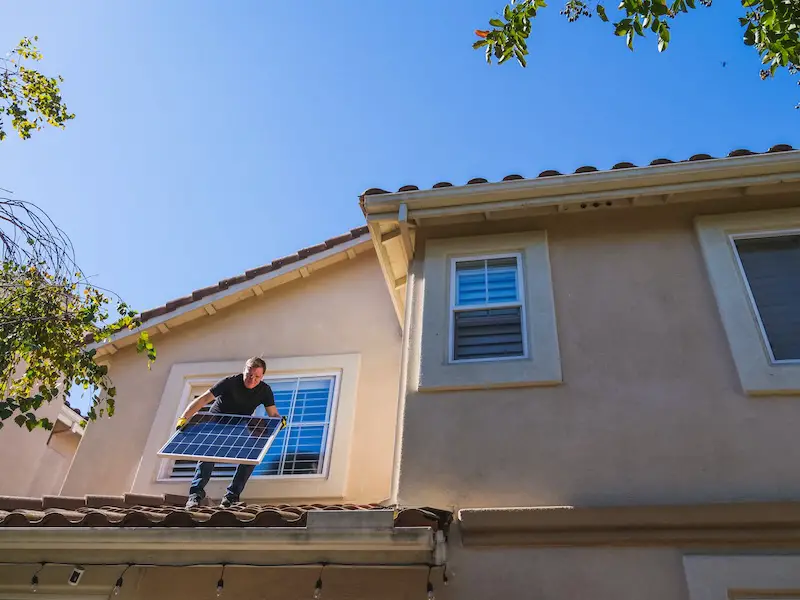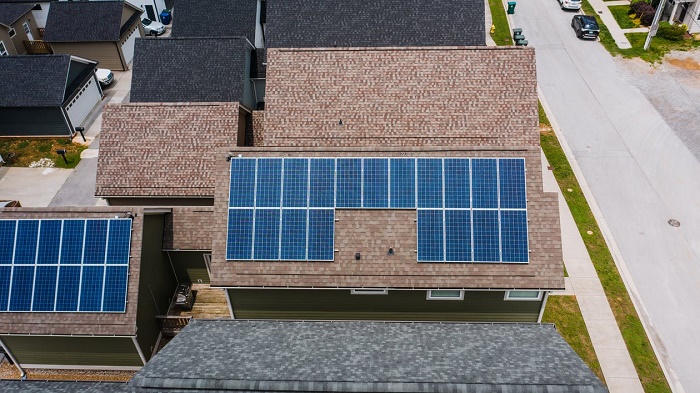Why It’s Time to Invest in Sustainable Housing
![Why It’s Time to Invest in Sustainable Housing [node:title]](/sites/default/files/styles/wide/public/ecohouse_near_faaker_see_austria.jpg?itok=wQjHBh8i)
An ecohouse near Faaker See, Austria. Photo: Wikimedia.
Concerns about the environment and climate change have fueled many changes across industries to reduce carbon footprints, and real estate is not an exception. Real estate has become one area where interest in sustainability has skyrocketed. What used to be an add-on feature in real estate is now a necessity. People want to live in sustainable homes.
Reports have indicated that sustainable housing is one of the most important trends in the real estate industry that is increasingly popular among developers, real estate agents, buyers, and tenants alike. If you are looking to own, sell, or rent a house, opting for a sustainable house promises many benefits that go beyond protecting the environment.
Sustainable real estate development focuses on incorporating environmentally friendly practices, energy efficiency, and social responsibility to minimize negative environmental impact and enable greener cities and communities. Sustainable homes and net-zero buildings generate their own renewable energy on-site and are optimized to use energy efficiently and reduce waste.
The US government has implemented several policies aimed at promoting sustainability in the housing market, including providing tax incentives for homeowners and developers who invest in sustainable housing. The Environmental Protection Agency (EPA), for example, has a program called Energy Star that certifies home that meet certain energy efficiency standards.
Protecting the environment is undoubtedly the main driver for increased demand and growth of sustainable housing, with studies showing 77% of people want to live more sustainably. However, there are many other reasons and benefits of investing in sustainable eco-homes.
8 Reasons and Benefits of Investing in Sustainable Homes

From health benefits to improved quality of life and financial incentives, the reasons to choose a sustainable house and eco-friendly real estate development are many.
Here’s why now is particularly the right time to invest in sustainable housing:
1. Increase Value of Property
Buying a sustainable home is a great way to secure and increase the value of your investment. Sustainable houses are better-priced than non-sustainable homes.
While this might mean a higher investment price if you are the one buying, it will also be a huge benefit to you if ever you decide to sell too.
In addition, the fact that sustainable homes are very popular right now makes it a more attractive property for potential buyers, giving an advantage to property sellers over non-green homes.
2. Increasing Market Demand
Millennials are group that’s all about sustainable houses. Since, Millennials are the largest home-buying group in the United States and many other parts of the world, they are no doubt central players in the property market. As a property seller, you should provide them what they want.
Millennials’ interests in sustainable housing is expected to continue driving growth in this industry, along with the Gen Z’s growing interest as well. These younger generations are considered the most environmentally conscious and they continue to show great interest in sustainable living across the world, including the use of solar panels and the adequate use of energy.

3. Demand for Sustainable Rentals Is also High
The benefits of investing in sustainable housing are not limited to selling or buying properties. As a landlord, you could greatly benefit from a rental point of view.
Just as more buyers are now interested in sustainable homes, the same stands true for people looking to rent. These homes are seen as more desirable as they have the added benefit of not only reducing costs when it comes to energy, but also contributing to environmental protection.
Some renters these days even make green appliances and modifications part of their “must-haves” when looking for a house to rent. Many of them state that they would be willing to pay more to rent a place with sustainable features. This can increase your return on investment.
4. Reduce Energy Expenses
Sustainable houses are more energy-efficient. These houses can lower and decrease utility expenses considerably, which is attractive to most people.
Many sustainable homes also make use of renewable and natural energy (such as energy from solar panels), which can also have a very positive effect on the monthly home budget.
Moreover, if you have excess to renewable energy in your home, you can benefit by selling it to electricity companies, which is also a boon.
5. Build for Durability
While all houses are built to be durable, sustainable houses are built with this consideration as a priority. Sustainable homes are made with sturdy, eco-friendly materials carefully chosen to ensure that they are durable and do not pollute the natural environment.
Some of the materials used are lighter and thinner than traditional ones. While this could be a cause for worry, the materials are deliberately chosen because they are stronger. Such is the case with recycled steel, which is often used for the construction of beams for sustainable homes.
Other exceptionally durable materials used in the construction of sustainable homes include reclaimed wood, bamboo and cork flooring, which can last a lifetime and lead to reduced stress of having to find a contractor to deal with maintenance issues every other time.
Renovations and the need for constant fixes leads to considerable waste, which is not good for the environment or your wallet. Sustainable houses help you avoid this thanks to their durability.
6. Tax Benefits
Many governments around the world are now providing tax benefits to owners of sustainable houses, including allowing loans with no interest when a sustainable house is being purchased.
In the US, tax benefits are also provided to the owners of eco-friendly homes. There is also the possibility of getting credit on taxes, which especially applies to sustainable homes builders.
Additional benefits are expected to continue to be offered, as governments provide more incentives to encourage homeowners and construction companies to take sustainable options and entrepreneurs to start sustainable real estate businesses.
7. Environmental Benefits
Of course, there are many environmental benefits when it comes to eco-friendly houses. With lower emission of greenhouse gases, a lower carbon footprint, and smarter energy use, the advantages and positive impacts on the environment is tremendous.
That is especially important considering current concerns about climate change, and the fact that numerous experts have warned that actions to curb climate change need to be taken urgently.
Plus, these are long-term investments because sustainable houses built today will last for many years and are expected to increase in number over the coming years.
8. Personal Health Benefits
The materials used in sustainable housing tend to be less toxic and less prone to mold growth. This is a great benefit for your health and that of your loved ones.
In addition, the quality of the air indoors also improves as a consequence of the type of materials used in sustainable homes.





















